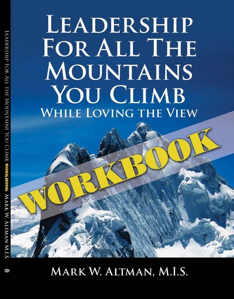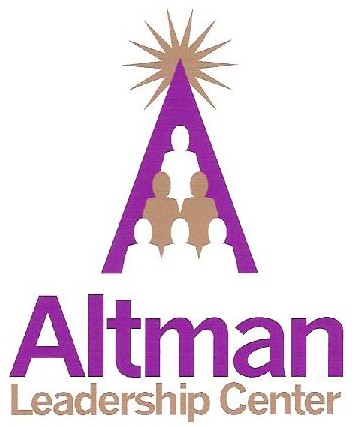Altman Leadership Center Speaking/Consulting web page
Friday, February 29, 2008
More Internet Safety
· It is fairly easy for your child, or anyone else to have an email account you know nothing about; so as I pointed out last week, getting your child’s buy-in to the rules of computer use is a powerful tool. I urge you to resist the temptation to not allow computer use for a number of reasons, not least of which is the importance of using computers in modern education.
· Make sure you have a list of ALL the usernames and passwords of all the sites your child frequents. Check these sites often, to include checking the email they receive if you believe there is reason to do so.
· Consider starting your own page on any networking site of which your child wishes to become a member. Ensure they make you “a friend” on their page. This allows you to see whatever the internet public can see so you can keep tabs on them. You may connect with old friends or classmates yourself and it might also make you seem “cool” to your child, but don’t hold your breath.
· MySpace, for example, will remove a child’s page if the parent asks them to, however you must know the web address or the web ID number. You can do a by name search if your teen can’t/won’t help you.
· Ensure that your child knows how to “block” any MySpace/Yahoo/Facebook user that might harass or post inappropriate comments or email. Report any such activity to the provider of those services. Email and social network providers all take such activity very seriously and will respond to your concerns promptly.
· Check the web pages your child frequents by looking at the “history” in your web browser. Web browsers are programs such as Internet Explorer, Firefox and Safari. Again, if you find this difficult to figure out, your child or grandchild can help you the first few times.
The internet is an incredible information-sharing tool, but like most tools, the internet can be used to do great harm. Ignoring this tool in the information age is not a successful strategy for a child’s long-term success, as almost every job and function in society is tied to many others and they all have to share information. Children have to learn to negotiate the world they live in now, not the one their parents or grandparents were raised in and more to the point must prepare for their own future.
I believe a healthy dose of caution is always a good thing for a parent; however abject, unreasoned fear is as bad as a lack of caution. Children need parents to get up to speed on these issues and stay out front because the ability to share information quicker is only going to get more important in society and technology is only going to be more integrated into our lives.
Tagline: Mark Altman is a speaker and leadership consultant with the Altman Leadership Center. Mark has completed graduate work in Marriage and Family Counseling and is working on a PhD in Leadership studies at Gonzaga University. He is happy to speak or provide a workshop for your organization and can be reached at mark@taolc.com.
Monday, February 25, 2008
Social Networking Sites
Since beginning this column over a year ago, I have been fortunate enough to have several people per week talk to me about the topics I write about in a very complementary manner, but supportive or not, I always ask them provide feedback or suggest topics that would be helpful to them in their relationships. I appreciate every comment, positive or not. This week I talked to two sets of parents who wanted some suggestions on the networking sites such as MySpace, Facebook, and several others that have become so popular with teenagers and young adults.
These sites have become part middle/high school yearbook, part high tech pen pal, part continuation of the social aspect of the school day, and even a place for classmates to keep up with each other or rediscover each other after years apart. Participants can leave messages to friends, in private or in a public forum, and even post pictures and video. A person’s profile page can contain pictures, a general map showing where in the US the person lives, all the places they have travelled, their interests, hobbies, jobs and just about anything else you can imagine.
Employers, scholarship committees, universities, internships, even the Armed Services routinely look at an applicant’s page. This brings me to my first piece of advice, and it applies to everyone on networking sites: Do NOT post anything you wouldn’t proudly tell ANYONE in your life: grandma, your boss, your pastor/priest, or a perfect stranger. When you post to these sites, that post is on the Internet forever and everyone on the planet can view them. Along with this, check to see what your friends are posting about you and ask them to follow the “Grandma” rule when posting about you. Ok, adults you are now on your own.
I am lucky enough to be married to a technology teacher, so parents here are some things Dawn and I have learned with four kids with MySpace and Facebook pages.
- Have an “open door policy.” Either the computer is in a public place like the living room; or if they have their own computer, the bedroom door is open if they are on the computer.
- You should know the passwords to every email account and networking site they are on. Write them down and check them often. You may want to provide your child fair warning before logging in the first time, but let them know after the first time surprise inspections are the rule.
- Check your kid’s pages often. If you are uneasy about reading a diary or going into their room uninvited, these pages are not the same- they are public knowledge. For what it is worth, my wife and I hold no such squeamishness.
- Remind them often that the cute teenage boy/girl that is emailing or messaging them may be neither a boy/girl nor a teenager.
- Finding something objectionable should not be a “gotcha” moment. It should be an opportunity for a discussion about the rules, and why the rules are what they are. As with all household rules, try as much as possible to negotiate and get your child’s “buy in” to the rules.
At the end of the day, YOU are the parent. You provided the computer, the internet access, the electricity and the place the computer sits. You are also responsible to keep your child safe and to protect their future until they decide their own path. These networking sites do not have to be a bad thing, so don’t fear them. They can be another tool for you the parent to have window in the life of your teenager, make good use of it.
Tagline: Mark Altman is a speaker and leadership consultant with the Altman Leadership Center. Mark has completed graduate work in Marriage and Family Counseling and is working on a PhD in Leadership studies at Gonzaga University. He is happy to speak or provide a workshop for your organization and can be reached at mark@taolc.com.
Friday, February 15, 2008
“Healthy Divorce”
A healthy divorce requires a lot of work to make happen as well as a maturity and deep desire to have a healthy divorce. You should be highly motivated to achieve a healthy divorce because as the National Marriage Project at Rutgers University shows, children from divorced homes have a much higher chance of divorce themselves and suffering into adulthood with all of the social problems we as parents try to help them avoid. Many of these problems are exacerbated in a very hostile, unhealthy divorce.
Divorcesource.com notes a number of other benefits to achieving a healthy divorce:
· You will alleviate and ease tensions and conflict.
· You will possess a far greater opportunity regarding compliance with the terms of your agreement.
· You will save thousands of dollars in legal expenses.
There are now three ways to divorce: the old adversarial process of each side getting lawyers and inflicting as much damage to each other as possible, mediation, and collaboration. The collaborative divorce is becoming much more common as couples realize the benefit to the entire family. Locally, Angela Marshall with the Marshall Law Office is an Idaho Supreme Court Approved mediator and she reports, “Couples can save up to 75 percent of their legal costs by using mediation. Attorneys in the area routinely charge a 3,000-dollar retainer for each party just to get started. Where mediation typically runs 1,000-1500 dollars. What’s more, mediation is usually more successful in getting both parties to abide by the agreements they make as opposed to the courts trying to compel behavior.”
While there are a number of books and internet sources that outline in detail how to have a healthy divorce, you and your spouse should give serious consideration to a marriage and family therapist to guide you through the process. Counseling is very helpful to move the entire family into the new paradigm post divorce. Children, if any, need to see their parents being civil to each other at all times, and parents should do whatever it takes to relieve the children of any guilt they may have over the divorce. Counseling has benefits to the couple as well, both healing in the current relationship and preparing for relationships in the future.
The best possible answer to this age-old question is to be a highly functioning person who finds and marries a highly functioning person, and then as a couple do the hard work and preventative maintenance of the relationship to keep the relationship healthy. The next best answer is to find a qualified marriage family therapist at the first sign of trouble to get the relationship back on an even keel. Failing these two best options, at a minimum, you owe it to yourself and any children from the relationship, to end your marriage with compassion, dignity, grace, and emotional health.
Saturday, February 9, 2008
Teen Dating Violence
My friend Camie Wereley, from the CDA Women’s Center, and I were talking this week about the teen dating violence awareness workshop I attended a couple of weeks ago, and she informed me this first week of February is Teen Dating Violence Awareness Week. Because I have four teenagers, two boys and two girls, I get to enjoy four helpings of the angst every parent is served when their teenager begins to date, and so this topic holds particular concern for me. It should hold general concern for all of us as we guide our teenagers through learning to be in relationship with each other. For those of you from the “Show Me” state, and anyone else that is skeptical this is a problem. . .
The following statistics are from the Bureau of Justice in May 2000:
Thirty to fifty percent of high school students report having already experienced some form of teen dating violence.
One in three either have been or will be in an abusive relationship.
Young women (16-24) experience the highest per capita rates of intimate violence- almost 20/1000
38% of “date rape” victims are 14-17 years old and 68% of women raped knew their rapist as a boyfriend, friend or acquaintance.
While boys can be abuse victims, usually it is not with physical violence but controlling behavior such as constant texting or calling and threatening to harm herself if he ends the relationship.
There are other statistics showing how wide spread the problem is, my hope is you are asking yourself what you can do about it. If you are a teen and experiencing dating violence then tell someone you trust and get help. Telling your parents is a great place to start; they want to help. However, if you can’t tell them, call Project Safe Place 208-676- 0772 and the Women’s Center has a 24 hr Crisis Intervention Line 208-664-9303.
If you are a parent, modeling good relationship behaviors is the place to start. Dad, your kids see how you treat your wife, or partner, in the case of divorced homes. Girls from a home of abuse are more likely to have every social problem we know of from teenage pregnancy, to drug abuse, to being abused themselves. Mom if you are being abused and staying with the relationship, your daughters are far more likely to be abused and your sons far more likely to become abusers. Parents, communicate with your kids LONG before they begin dating. Let your daughter know what behavior she should expect from a date and make sure your son knows the behavior you expect from him.
Learn to recognize the signs of abuse and do not be afraid to get involved in your child’s dating habits. They are learning how to be in relationship and need to be coached; either you will coach them or most likely the friend you like the least is going to. You should meet and get to know every date. If you see a boyfriend being controlling, physical signs of injury, failing grades or truancy, use of drugs or alcohol, emotional outbursts or changes in mood or personality then get involved. Let them know you’re there to help and support; use active listening skills and try very hard not to be judgmental.
Parents and teens alike, this can be a special time in both of your lives with a little common sense, open and honest communication, adherence to agreed upon family rules, and love and respect.







